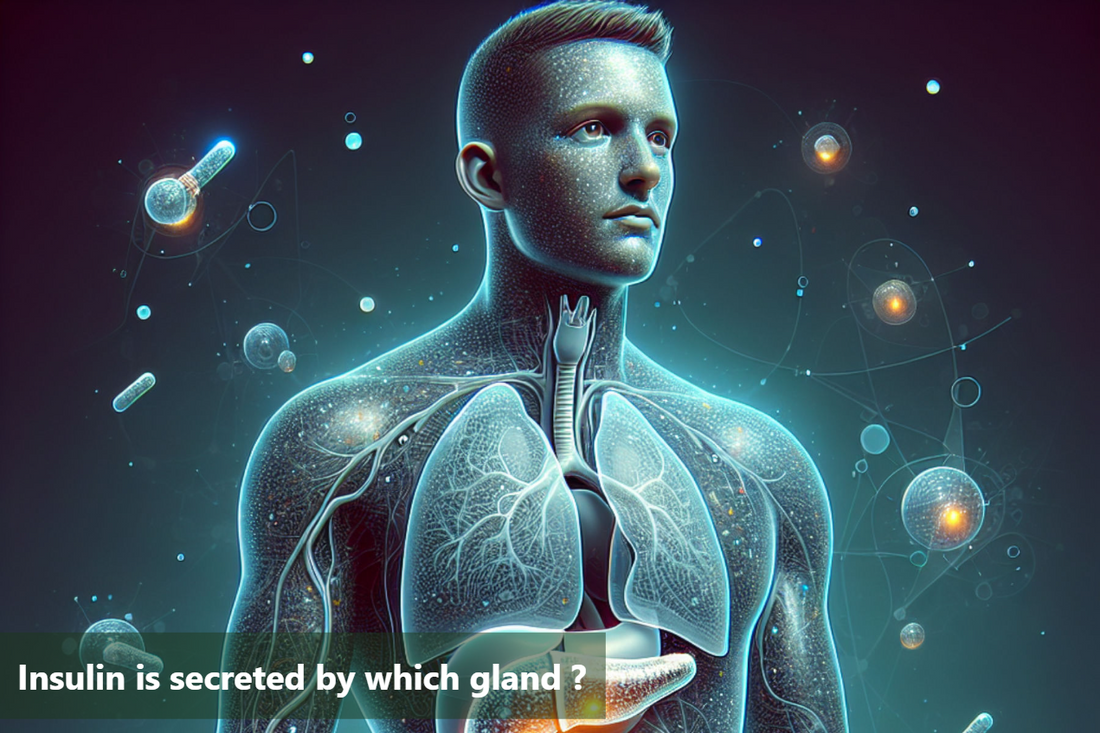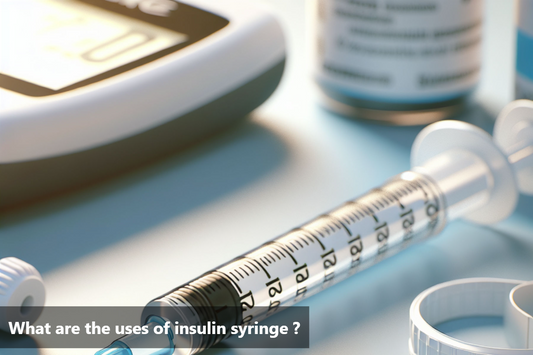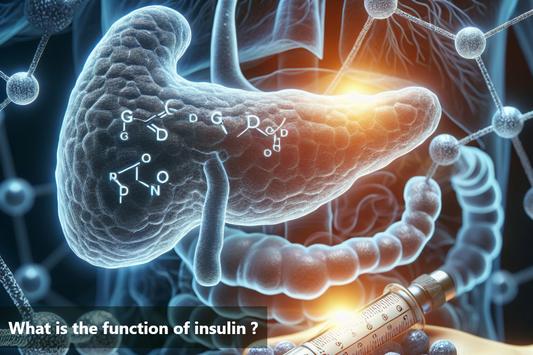Insulin plays a crucial role in regulating blood sugar levels in the human body. It is a hormone produced by the pancreas that allows your body to use sugar (glucose) from carbohydrates in the food that you eat for energy. This hormone helps to keep your blood sugar level from getting too high (hyperglycemia) or too low (hypoglycemia).
The pancreas, an organ located behind the stomach, is responsible for secreting insulin. More specifically, insulin is secreted by the beta cells in the pancreas. These specialized cells continuously monitor blood sugar levels and release insulin as needed to help cells absorb glucose.
Understanding the importance of insulin secretion is vital for individuals with conditions like diabetes, where the body either does not produce enough insulin or cannot effectively use the insulin it produces. Without sufficient insulin, the body struggles to regulate blood sugar levels, leading to potential health complications.
Pancreas: The Gland That Secretes Insulin
-
The pancreas plays a vital role in the endocrine system as the gland responsible for secreting insulin. Insulin, a hormone crucial for regulating blood sugar levels, is produced by specialized cells within the pancreas known as beta cells. These beta cells are located in the islets of Langerhans, scattered throughout the pancreas.
-
When we consume food, especially carbohydrates, our blood sugar levels rise. In response to this increase, the beta cells in the pancreas release insulin into the bloodstream. Insulin acts as a key that unlocks the cells, allowing glucose from the blood to enter and be used for energy or stored for later use. This process helps maintain stable blood sugar levels and ensures our cells receive the energy they need to function properly.
-
Apart from insulin secretion, the pancreas also carries out exocrine functions, such as producing digestive enzymes that aid in the breakdown of food in the intestines. This dual role makes the pancreas a crucial organ in maintaining overall health and well-being.
Understanding the pancreas's role in secreting insulin is essential for comprehending how our body regulates blood sugar levels and the importance of maintaining a healthy endocrine system for overall well-being.
How Insulin is Produced and Secreted
Insulin, a vital hormone in the human body, is primarily produced and secreted by the pancreas.
-
Synthesis: Insulin is produced in pancreatic beta cells.
-
Transcription & Translation: The insulin gene is transcribed into messenger RNA (mRNA) and translated into preproinsulin.
-
Processing: Preproinsulin undergoes modifications in the endoplasmic reticulum and Golgi apparatus, forming proinsulin.
-
Storage: Proinsulin is stored in secretory vesicles within beta cells.
-
Release: When blood glucose levels rise, beta cells sense this increase and release insulin via exocytosis.
-
Effects: Insulin binds to receptors on target cells, promoting glucose uptake, glycogen synthesis, and cellular metabolism.
-
Regulation: Insulin secretion is regulated by blood glucose levels, hormones, neural signals, and metabolic factors.
Understanding the process of how insulin is produced and secreted sheds light on the significance of the pancreas in maintaining proper blood sugar levels. This delicate balance orchestrated by the beta cells ensures that our body has the energy it needs to function optimally.
Factors Affecting Insulin Secretion
In the realm of insulin secretion, several factors come into play that can have a significant impact on the process.
-
One crucial element to consider is the individual's diet. Consuming high amounts of sugar and refined carbohydrates can lead to spikes in blood glucose levels, prompting the pancreas to release more insulin to regulate these levels. On the other hand, a balanced diet rich in whole foods like fruits, vegetables, and lean proteins can support stable insulin production.
- Physical activity and exercise also play a vital role in insulin secretion. Regular exercise not only helps regulate blood sugar levels but also enhances the sensitivity of cells to insulin, reducing the body's overall insulin requirements. This highlights the importance of leading an active lifestyle to support optimal insulin function.
-
Furthermore, health conditions like diabetes can profoundly impact insulin secretion. In type 1 diabetes, the immune system attacks the beta cells in the pancreas responsible for producing insulin, leading to a deficiency in insulin production. In contrast, individuals with type 2 diabetes often experience insulin resistance, where the body's cells do not respond effectively to insulin, requiring higher levels of insulin for proper regulation.
Understanding these various factors that influence insulin secretion can empower individuals to make informed choices regarding their diet, exercise routine, and overall health to support optimal insulin function and overall well-being.
Behind Insulin Production: Which Gland Plays the Key Role?
Understanding that the pancreas is the gland that secretes insulin is fundamental in grasping the importance of this hormone in overall health and wellbeing. It plays a crucial role in regulating blood sugar levels and aiding in the metabolism of carbohydrates, fats, and proteins.
Moreover, we have explored the fascinating process of how insulin is produced and secreted, shedding light on the intricate interplay between beta cells, glucose regulation, and the body's response to varying levels of blood sugar.
By discussing the factors that influence insulin secretion, such as lifestyle choices, dietary habits, and underlying health conditions like diabetes, we have gained valuable insights into the holistic nature of maintaining optimal insulin levels for overall well-being.
In essence, this exploration serves to underscore the significance of insulin in the body's physiological processes and emphasizes the indispensable role of the pancreas as the primary gland responsible for the secretion of this essential hormone.
This Blog post is an initiative by DiabeSmart, to provide accurate and Nutritionist / Doctor approved information related to Diabetes. DiabeSmart is India's first Food brand designed specifically for Diabetics, that has been clinically tested on Diabetics and Pre-Diabetics to deliver 55% - 70% lower Sugar spikes. DiabeSmart is part of Lo! Foods - India's leading brand for Everyday Functional Health foods.











